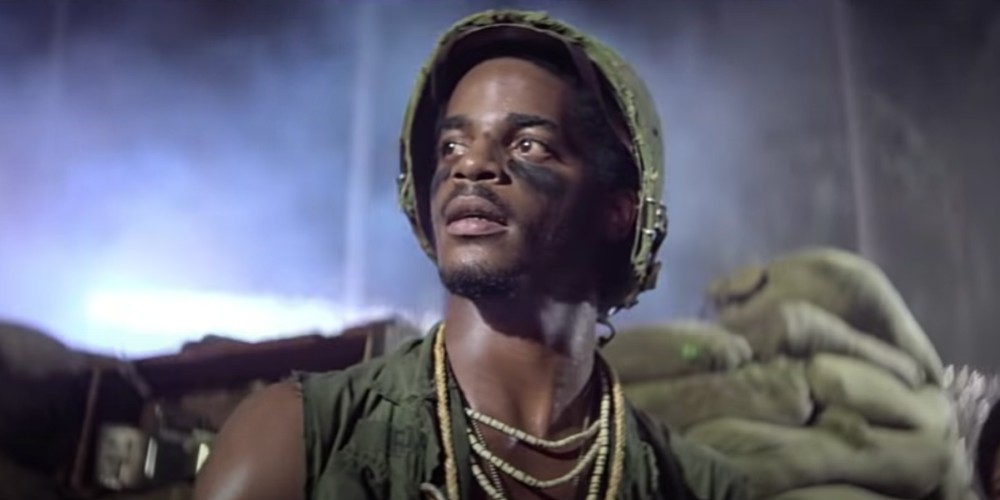In the film Apocalypse Now, Martin Sheen’s Captain Willard comes upon a remote outpost defending a bridge. Hoping to confer with the commander, he instead finds a delirious state of chaos. A machine gunner fires heavy caliber rounds into the night while trading taunts with an unseen member of the Viet Cong.
“Who’s the commanding officer here?” Willard asks. “Ain’t you?” returns the bewildered gunner. After being awakened by his compatriots, “The Roach,” an apparently stoned soldier with a tiger-striped grenade launcher, advises that the VC is close. He propels a grenade off into the distance and the taunts of the enemy are silenced. “Hey, soldier. Do you know who’s in command here?” asks Willard. “Yeah,” answers the Roach before walking away.
That scene typifies the vibe right now on Twitter, in the best possible way.
Following Twitter’s purchase by Elon Musk, there is a sense that anything can happen — and that it just might. On Thursday, the rumor was going around that it might be Twitter’s last day. Musk issued an ultimatum to Twitter’s apparently entitled staff — at least one worker was surprised to be let go for publicly insulting Musk — that the work going forward would be “hardcore.” Those who desired to stay would need to affirmatively respond to Musk’s email. When few employees took him up on the offer, Musk had everyone locked out of the building. This, along with a mass wave of resignations, contributed to the perception that Twitter lacked critical engineers in nearly every area of operation and could soon be gone. I exchanged half-joking goodbyes with some of my Twitter pals.
;768:[300×250,336×280,320×100];0:[300×250,320×100,320×50]”]But when Friday morning came, Twitter was still there. “Really glad I didn’t freak out last night and post this one terrific picture I have of my boobs,” cracked one user I am friendly with. Another friend posted that if Twitter is nearing its end, at least we spent its final hours making fun of sanctimonious liberals.
And sanctimonious they are. Aaron Rupar, a smug lefty influencer, took the “battle” metaphor a bit too literally, excoriating a fellow liberal Twitter user for “stolen valor.” The user’s crime? He had posted a One America News Network clip. Rupar had posted the same video earlier in the day, and felt he deserved credit merely for being the first to post something that wasn’t his. “How dare he take what you rightfully stole,” quipped one of my Twitter friends.
Rupar’s use of the phrase “stolen valor” was telling. These people really do believe they are engaged in a brave act of resistance. “JoJoFromJerz,” an influencer who was, at least until recently, a teacher, likes to shriek to no one in particular that she will not allow Musk to drive her off the platform, as if he knows and cares who she is. Naturally, she and Rupar, along with a gaggle of other low-effort liberal trolls, were recent guests at the Biden White House.
Activist Andrew Wortman (username AMoneyResists — resists what?) recently griped of Musk, “He fired ¾ of the employees. Now he’s planning to starve the rest of them. He’s failure incarnate.” This in response to a report that Musk would start requiring Twitter’s employees — all adults, at least in the chronological sense — to pay for lunch at the previously free cafeteria. And lest you think the tantrums are isolated to boutique influencers, CBS News just announced that out of “an abundance of caution,” they will stop using Twitter while they monitor what is occurring on the app.
Musk has committed two great sins in the eyes of the left. The first is that he is supposedly a fascist because he does not believe in deplatforming figures over speech. In practice, this might mean that he allows Donald Trump back onto Twitter. He has disrupted the left’s relative chokehold on what is considered allowable speech on social media. But fascism? Musk himself tweeted that Twitter’s new policy is “freedom of speech, but not freedom of reach.” Hate tweets won’t be found unless users seek them out, Musk said, “which is no different from the rest of the internet.” This should hardly be controversial.
;768:[300×250,336×280,320×100];0:[300×250,320×100,320×50]”]Musk’s second transgression is that he is supposedly not competent enough to run Twitter. It’s hard to say whether this is true. Musk has axed a lot of longtime employees, but Twitter is bleeding money. He was derided for a new scheme to sell the coveted “blue checkmarks” indicating verified accounts, but it got people talking about the app. By Musk’s own admission, Twitter will do “stupid” things in the coming days and take chances. He is acting as a tech disruptor, an archetype once beloved by the left. It’s hardly believable that a man who is spearheading private space travel is “failure incarnate,” as Wortman called him, even if he can’t make Twitter work.
Twitter under Musk is certainly no worse than the alternatives. Some on the left have insisted they will decamp to ersatz versions of Twitter, like Mastodon. But as the New York Times columnist Paul Krugman recently complained, Mastodon is basically unusable.
Maybe Twitter will still be here tomorrow. Maybe it won’t. The difference between enjoying that uncertainty and despairing over it is how seriously you take your time on social media. Twitter is a good place to get news and even make new friends. But unlike those who have memed themselves into believing they are a brave resistance, my friends don’t fret about the future of democracy in a world without the world’s seventeenth-largest social media network.
Bill Zeiser writes from Hillsdale, Michigan





















